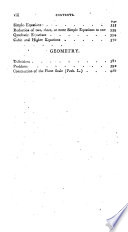 | Mathematics - 1801 - 446 pages
...Other two may be readily found. 1. The first term, ? commonly called the 2. The last term, j extremet. 3- The number of terms. 4- The common difference.' 5- The sum of all the terms. . , PROBLEM I. , 1'te frit term, the last term, and the number of terms behtg given, to find the sum... | |
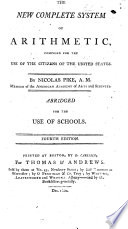 | Nicolas Pike - Arithmetic - 1802 - 350 pages
...five following things being given, the other two may be cafily found. i. The firft term. z. The laft term. 3. The number of terms. 4. The common difference. 5. The fum of all the terms. PROBLEM I. Tliefrß term, the laß term, and lie number oftermt leitig given,... | |
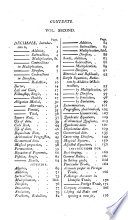 | Paul Deighan - Arithmetic - 1804 - 504 pages
...Arithmetical Progreffion, there are five things to be «bferved, viz. — 1. The fir ft term. 2. The laft term. 3. The number of terms. 4. The common difference. 5. The aggregate, or fum of all the terms. Any three of which being given, the other two maybe found. Propofition... | |
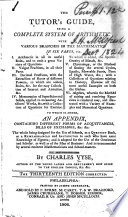 | Charles Vyse - Arithmetic - 1806 - 342 pages
...6X2=2+ 10=12 and 6X2=4+8=12. In Arithmetical- Progression there are five Things to be observed, viz. 1. The first Term. •2. The last Term." 3. The Number of Terms. 4. The common Excess or Difference. 5. The Aggregate Sum of all the Terms. Any three of which being given, the other... | |
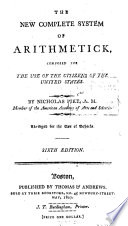 | Nicolas Pike - Arithmetic - 1807 - 370 pages
...five follow ing things being g1 the other two may be eafily be found. i. The firft term. 2.' The laft term. 3:. The number of terms. 4. The common difference. 5. The fum of all the terms. PROBLEM I. 1 he frjl term, the laft term, andthwMItr of terms being given, tojirtd... | |
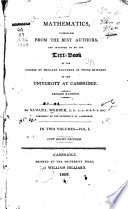 | Samuel Webber - Mathematics - 1808 - 466 pages
...be readily found. 1. The first term, •» commonly called the 2. The last team, J extremes. 3._The number of terms. 4. The common difference. * 5. The sum of all the termso PR0BLEM 1. Thejirst term, the last term, and the number of terms beinggiven, to jind the sum... | |
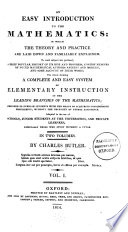 | Charles Butler - Mathematics - 1814 - 540 pages
...progression ; viz. 1. The least term, 1 „ , .. }• called the extremes. 2. The greatest term, J 3. The number of terms. 4. The common difference. 5. The sum of all the terms. Any three of these five being given, the remaining two may be found, as is shewn by the rules and examples... | |
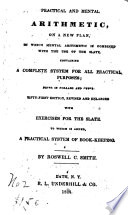 | Roswell Chamberlain Smith - 1814 - 300 pages
...and, like Arithmetical Progression, any three of them being given, the other two may be found, viz. J. The first term. 2. The last term. 3. The number of terms. 4. The sum of all the terms. 5. The ratio ; that is, the multiplier or divisor, by wbish we form the series.... | |
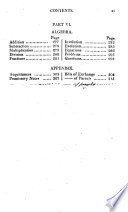 | Charles Vyse - Arithmetic - 1815 - 340 pages
...geometrical progression the same five things are to be observed as in arithmetical progression, viz. 1. The first term. 2. The last term. 3. The number of terms. 4. The ratio. 5. The sum of the terms. Any three of these being known, the rest may be found. If to any series... | |
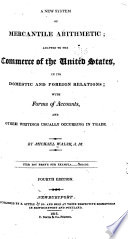 | Michael Walsh - Arithmetic - 1816 - 288 pages
...2X32=4X16=8X8=64. In Geometrical Progression the same five things are tp be observed as in Arithmetical, viz. .]. The first term. 2. The last term. 3. The number of terms. 4. The equal difference or ratio: . , 5. The sum of all the terms. NeTE. As the last term in a long series... | |
| |